Characters: What works and what doesn't
Guest author: Morgan Wyatt
Ever read a book and you really liked it because the characters came alive for you? And yet, you hand this book to your best friend and she doesn’t like it. Might even complain about the characters, what gives?There is a good chance your friend never even read the book because she didn’t have time and brushed you off with the character line. Or it could be you like different things in characters for different reasons. I like strong women in my stories because they can do things on their own and don’t wait around for an alpha male to rescue them. I have enough experience (read age) to know those alpha males are not waiting to do things for me; however, they are attracted to independent women. This means people like to read about characters that resonate with them.
Any woman who has ever had a bad date enjoys reading about a woman who goes through a series of bad dates before she finds a keeper.Most people like flawed characters because we realize we are flawed. In Confessions of a Shopaholic by Sophie Kisella, the main character is living on a beer budget with champagne taste. As she alternately chastises herself for buying things not in her budget, she also congratulates herself on the great buys. Been there, done that, so have many others who enjoy Kisella’s shopaholic series. Flaws we can identify with are good. Monk, the television show detective, has demonstrated that a hero can have OCD tendencies and still get the job done. So a character can obsess on if she left the iron on and even rush home to check catching her ex-husband breaking into her house. A character without flaws would have just gone to work and never known it was her ex-husband who took the secret family recipe for potato salad that her future business was centered around.When it comes to flaws, there can be too much or too little.
Some of you can remember the romances with the pure, witless heroine who never did a bad thing in her life. She’s gorgeous and helps orphans and widows and knits sweaters for hairless dogs. Yawn, she’s perfect, she has nothing to overcome, no interesting traits, no baggage. I am amazed the hero has any interest in her at all, but then he isn’t all that interesting with his washboard abs and piles of money. Luckily, these types of books have fallen mainly by the wayside as the 21st century woman demands someone more like herself. Sure the hero can have washboard abs, but he may have a crazed ex or a fear of commitment, more likely both.When it comes to main characters we need the likability factor. It is perfectly okay to hate the villains, but we must like the main characters because without a likable character why read the book? We must be invested in the heroine’s struggle and want her to triumph. If she is such a nasty piece of work, that we could care less what happens to her—then that’s bad news. I’ve picked up books where there isn’t a likable character in the book and immediately put them down again. Can your main character be tart and likable at the same time?
It happens. Think Scarlett in Gone With The Wind. Margaret Mitchell was inspired when she created Scarlett. Early on you are told that Scarlett is not the prettiest or the richest debutante around, but she knows how to make men hang onto her every word. What young girl doesn’t want to find out Scarlett’s secret method? The fact she is petty and greedy is overlooked because in the end, she gets her man… well, most of the time. Scarlett often represents the side of us we don’t like to recognize—so we can identify, even when we pretend not to. Ms. Mitchell may have decided Scarlett didn’t deserve Rhett in the end because of previous man-stealing activities. While this seemed appropriate at the time it was written, isn’t there a few of us who wanted Scarlett to end up with Rhett?
Where do all these ideas for characters come from? Usually the writer’s own life or someone they have observed. They very seldom jump entirely from the writer’s imagination. Please be careful when modeling your character on a real life person. Terry McMillan in one of her earlier works wrote about a character based on her ex-husband. Her ex heard about the book and successfully sued for half of the profits. As hard as I tried, I can’t even find that book in rare, out of print online book stores; I hesitate to mention it since many of you will look. With this is mind, many people put a disclaimer that any character found in their book WAS NOT based on any real person living or dead. Good thing to keep in mind, when you are tempted to use your boss or ex for a villain. Sometimes it is best not to let those closest to you read what you write since they will be looking for themselves. My children always do—look for themselves in my writing and wonder which child was killed off if the main character only has two children.
As writers, we do write about what we know—that’s our strength. We can research and write about what we research. Still, every character has a tiny bit of us in it. Some people think this is a bad thing and try to surgically remove any part of them that might be in a character. Maybe some craft book or workshop told them to do this. In the end, they have a character they aren’t close to and seems a bit stilted and not likable. You don’t have to be rude, smelly and bad to be unlikable just dull works too. The big question to ask yourself is: Is my character likable? He can have rough edges, bad shoes, acts means, but isn’t. She can make mistakes, date losers (she does need to wise up before the climax) and have blue hair. Ask your friends if your character is likable? Your judgment will be biased because you spend so much time with your characters (they are your imaginary friends.) I even like my villains. So give your characters a likability test—something similar to those tests in Glamour magazine. If they fail, then you need to write some likability into them. Show Mr. Hard and Crusty changing an old lady’s tire. Not a Hooters’ Girl tire, most men would cross seven lanes of traffic to do that. You could even have bad weather—keep him complaining to himself so you don’t lose his entire personality. Have fun with this. 🙂
Read Excerpts from Morgan Wyatt@ www.xoxopublishing.com or http://morganwyatt.webs.com/

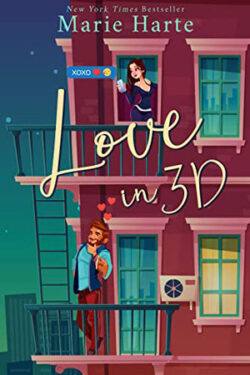
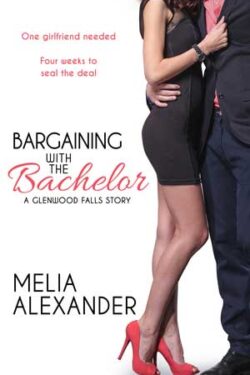
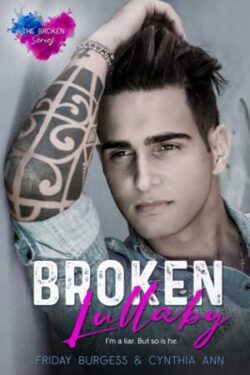
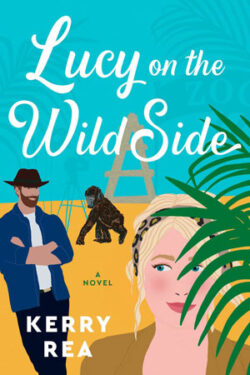
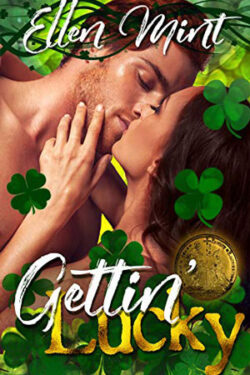

Lindy,
You hit the nail on the head. There is a very famous writer who is a billionaire by now–all her characters seem the same to me. It just doesn’t work for me. I guess her characters are like the popular girls in high school–all surface gloss, but no depth, but they do deliver the plot line.
I like depth to my characters and friends. I can take a little crankiness, mood swings and eccentricities in both friends and characters if there is something to balance it out.:)
Thanks for stopping by and posting.
Morgan
Hi Lexee,
I read a book once written by a famous author where every character was nasty. I really wasn’t rooting for anyone in the story to survive. I noticed this same author changed her writing to now include likable characters. Makes you wonder, but not to much because I bet her fans complianed.
Morgan
Valerie,
Thanks for your comments, it has given me a great deal to consider. I used to accept the perfect characters at face value–hey, he’s a great guy. I wonder how most of us would react if great guy had a major secret or flaw?
Hard to say, but we can imagine–then, write about it.:)
Keep reading Valerie, it is our great escape and alternate reality.
Morgan
Hi Joanne,
I liked what you said about characters being important. I also read for review, which means I read books I didn’t pick. If the characters don’t work, it is like a root canal with no novocaine.
Thanks for stopping by.
Morgan
You’ve made some very interesting points. I’ve read a number of books where I really disliked either the hero or the heroine, and it made me wonder why anyone would want to read about such an annoying character. But maybe liking a character isn’t that different from how & why we choose our friends in real life.
I definately have to connect to the characters. I don’t enjoy the book if I don’t connect.
This is really an interesting post. Yes, characters are important in a story and I need to connect with them to really enjoy the story. Sometimes I love the scarred ones, sometimes the heroic almost perfect ones. I do hate whiny characters, unless they have a turn around before the end of the book and learn to stand up for themselves or be more thankful.
Characters are the most important part of a story. I find that if I don’t care about them, then the book needs to go. I don’t always have to have the same traits in the characters in the books that I read, but they really have to be appealing.
Hi Carol,
I have always had a soft spot for Scarlett. Sure, she did bad things to survive, but she did realize she loved Rhett in the end. Alexandra Ripley wrote a follow-up on that particular tale called Scarlett that didn’t end the way I wanted either.
Thanks for commenting.
Morgan
Hi Morgan,
I really enjoyed your post. I’m not a writer but being an avid reader I agree 100 percent. If I can’t connect with the main characters, the book gets closed and I look for another read. I have to say that I would really have liked to see Scarlett and Rhett end up together. 🙂
Carol L.
Hi Carl,
In fact, I am planning to submit some work to XoXo–maybe this month. Then it is up to them. Thanks for buying To Catch a Chef. I hoped you had as much fun reading it as I did writing it. I hope to have my bio up at XoXo later tonight.
Morgan
Hi Morgan,
This is how it is in real life having a hate and love relationship with someone I presume its the same with characters.
Carl
PS: I brought a copy of your latest To Catch A Chef. Are you planning any more releases with XoXo Publishing? They have some great ebooks.